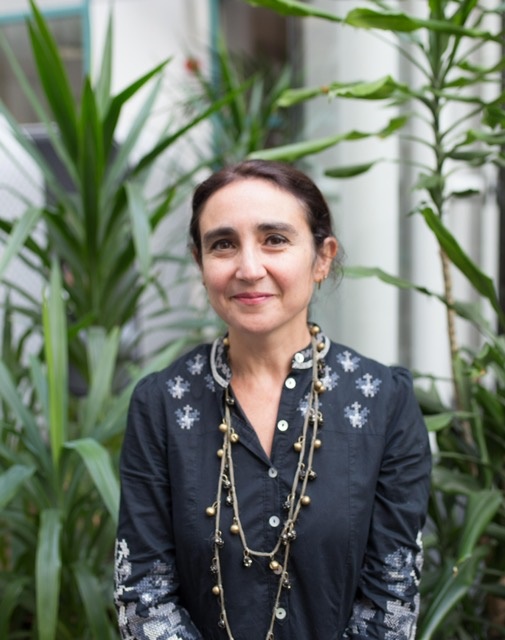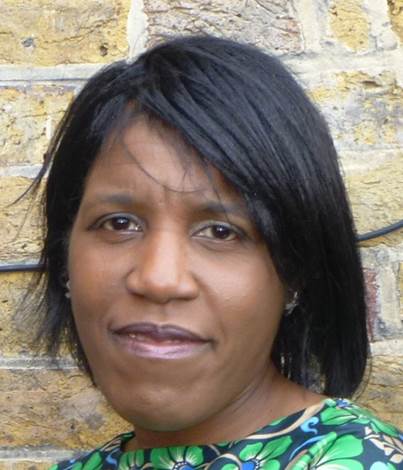Study options
- Starting in
- September 2025
- Location
- Distance Learning
- Fees
- Home: £6,150
Overseas: £12,150
EU/EEA/Swiss students
Note that fees are per year and may be subject to an increase on an annual basis - see details on our tuition fees page.
The fees are per annum showing the fees for the first year. The second year fees will usually incur an inflation rate.
What you'll study
This online learning MSc focuses on how we can combat the global health issues and challenges facing dental healthcare today, using strategic planning, evidence-informed decision-making and strong public health leadership.
You’ll discover how dental policy decisions are made and implemented, how to design a research study that can address issues in your healthcare setting, and what makes an effective leader.
You’ll take eight compulsory modules from the Postgraduate Diploma course and choose a specialist MSc module to gain advanced skills. You’ll also complete a dissertation, based on your research interests, in your second year.
You’ll be studying at an internationally respected institution: we’re ranked 15th in the world for dentistry (QS World University Rankings by Subject 2023). We have some of the most modern facilities in the UK: the Institute of Dentistry moved to new premises in The Royal London Hospital in 2014 – the first UK dental school to be built in 40 years.
Watch our video to find out more
You can also choose our Postgraduate Certificate or Postgraduate Diploma in Dental Public Health, Policy and Leadership.
Structure
- Seven Compulsory Modules
- One Elective Module (Three Elective Modules to choose from)
- Research project and accompanying dissertation
Compulsory/Core modules
The Dental Public Health and Policy module is the first module in the distance-learning (online) Dental Public Health, Policy and Leadership postgraduate Certificate, Diploma and MSc course. This module covers the fundamental principles of Public Health, Dental Public Health and policy making. Teaching is delivered online over nine weeks using a range of interactive e-learning tools, videos, key readings and tasks for students to complete on a weekly basis.
The Assessing Oral Health and Diseases in Populations module covers oral epidemiology, measures of oral diseases and the study designs used to assess the prevalence and causes of oral diseases in populations. It will introduce students to the epidemiology of common oral diseases. Students will also learn how to interpret data from epidemiological studies. The teaching delivered online over nine weeks will use a range of interactive e-learning tools, videos, key readings and weekly tasks for students to complete.
This module will equip students with (i) applied knowledge of evidence-based dentistry; (ii) the skills to enable them to critically appraise research and; (iii) strategies that allow them to apply and implement evidence in practice. The nine-week online teaching will use videos, existing publicly available resources, key readings and interactive task to build critical appraisal skills. Library skills teaching developed in collaboration with the School of Medicine and Dentistry librarian will equip students will database searching skills.
The Prevention and Oral Health Promotion module is the fourth module in the distance-learning (online) Dental Public Health, Policy and Leadership postgraduate Certificate, Diploma and MSc course. This applied and consolidated module covers oral health promotion, oral health promotion strategies, how to use behaviour change theories and models in oral health promotion, and how to use planning models to design, implement and evaluate oral health promotion activities. The module will enable students to design oral health promotion activities, and learn how to evaluate them.
This compulsory module will be delivered in Year 2 of the Dental Public Health, Policy and Leadership distance-learning postgraduate Diploma and MSc courses. It will start by giving students the theoretical basis for research. They will then journey through the stages of planning a research project including setting research questions, designing a study and acquiring ethical approval. The nine weeks of teaching will culminate in students submitting a research protocol and defending this in an oral presentation as a summative assessment.
The research project module will allow students to develop both an understanding of the research processes and the skills required to undertake a supervised project. It has two components worth 60 credits. The written report is a synopsis of a research project worth 90% of the module assessment (maximum 20,000 words). Students will have the option of carrying out a systematic or scoping review, a primary research study with fieldwork carried out in their home country or submit a full research grant proposal or a publishable academic public health report. Students will answer questions about their research project in a 20-minute oral presentation (viva) via Skype worth 10% of the module mark.
This module provides students with a comprehensive introduction to health systems in different geographical contexts. Starting with an overview of the different components of health systems and service coverage, it considers how best to finance and organise health systems to achieve universal health, the effective delivery of comprehensive primary health care, and the different components and functions of health systems. The module covers critical contemporary health system issues in countries across the Global South and North. It introduces students to key concepts that help understand the health systems and their components, locating them within socioeconomic, political and historical contexts.
Elective modules
This module will be delivered in Year 2 of the online PGDip in Dental Public Health, Policy and Leadership and as one of three elective modules in the MSc course. The Institute of Dentistry and the School of Business and Management will deliver this collaborative module. It will cover dental service planning including planning models, needs assessments, priority setting and action planning. Students will explore leadership theories and critically reflect on leadership challenges. Students will complete three summative assignments for this module covering learning outcomes related to leadership and planning. They will evaluate their own self leadership style by completing a self-leadership reflective essay. They will describe their experience of peer coaching a fellow student in a coaching reflection report. They will demonstrate their healthcare planning competencies by submitting an oral health needs assessment plan. Five percent of the module mark will assess student engagement using a criterion-based rubric and QEngage.
The Oral Health in the Global Context module is a Year 2 elective module available to online MSc in Dental Public Health, Policy and Leadership students. It will cover global oral health surveillance systems, development theories and the concept of universal health coverage. Students will also explore the role of advocacy, networking and communication. Students will then demonstrate their applied knowledge by preparing a position statement and presenting a live online 30 minute conference-style oral presentation (part of a their proposed oral health advocacy symposium) as a summative assessment. Five percent of the module mark will assess student engagment using a criterion-based rubric and QEngage.
This elective module will be available for students to complete in Year 2 of the online MSc in Dental Public Health, Policy and Leadership. It will start by giving students the theoretical basis for qualitative research. They will then journey through the stages of planning a qualitative study: setting research questions, selecting an appropriate study design and sampling strategy, gathering, analyzing and interpreting data and writing up findings. Students will learn how to critically appraise qualitative research. The module will conclude with qualitative research practice where students will develop a topic guide and pilot it on other students through peer learning. Five percent of the module mark will assess student engagment using a criterion-based rubric and QEngage.
Assessment
- 67% Modules
- 33% Dissertation
You will be assessed by a mixture of:
- Quiz questions, written coursework, MCQ examination and Zoom/Teams online presentations
- An assessment of your participation and engagement in the online activities
- A written research dissertation
Dissertation
The dissertation forms a major component of your degree. You’ll write a report of up to 20,000 words on one of these options:
- a qualitative or quantitative research project using data collected in your own country
- a systematic review or scoping review
- an oral health needs assessment or public health report.
Teaching
You’ll be taught through our online platform, QMplus, which will enrich your studies with a dynamic range of webinars, videos, interactive quizzes and Zoom/Teams presentations. Your written assignments will be submitted through the portal, while poster and oral presentations will be assessed via Zoom/Teams.
You’ll be encouraged to interact with your teachers and other students in online discussion forums, join group activities and become part of our community.
You’ll also be expected to use 10–16 hours a week preparing for your formal study sessions, read, produce written work and revise for examinations.
—"What I truly appreciate about this degree is how it has expanded my outlook on oral health which previously was only from a clinical perspective. It has introduced me to more impactful approaches to providing oral health services, where I see the potential to make a meaningful difference for a broader population in Pakistan. Moreover, I find the weekly engagement with current research materials in the field inspiring, and it continuously motivates me to expand my knowledge base."
"Being awarded a scholarship from Queen Mary University of London is a tremendous accomplishment for me. Coming from a country where there is a tremendous need for improvement in the public health sector, it has always been my aspiration to attend one of the world's top universities and gain knowledge of the best practices to bring back home to Pakistan. Thanks to the Commonwealth scholarship, this aspiration became a reality for me. "
Iffat Umair Niazi - MSc Dental Public Health Policy and Leadership Year 1 (2023)
Where you'll learn
Facilities
- Queen Mary’s dedicated online portal, QMplus
- Video and audio recordings of all lectures and other online resources
- Online library facilities, journals and a specifically designed study skills module
- Campus facilities if you decide to visit at any point during your course
- Watch our video to discover online study at Queen Mary
About the Institute
Institute of Dentistry
If you study with us, you will join a dynamic, successful dental school with a first-class reputation: Queen Mary has consistently been ranked in the top 20 in the World for dentistry in the QS World University Rankings by Subject and we were ranked joint first in the country for research environment for dentistry in the most recent national assessment (REF 2021).
The Institute of Dentistry is a special place to undertake your postgraduate studies. We bring together a number of world-leading researchers in basic and clinical sciences who supervise research students in the fields of oral medicine, oral pathology, oral microbiology, oral epidemiology, oncology, dental biomaterials, dental biophysics, dental public health, dental education, periodontology, orthodontics, paediatric, prosthetic and conservative dentistry.
The Institute is based in Whitechapel and offers cutting-edge technology, a superb education and first-class research facilities.
The Institute of Dentistry is part of Queen Mary’s Faculty of Medicine and Dentistry. Queen Mary is part of the University of London and a member of the Russell Group.
Career paths
The skills you gain on this programme will accelerate your training and significantly enhance your career prospects.
You’ll leave this MSc as a very well-qualified graduate, with opportunities for employment both in dental health care and public policy making.
You’ll also gain the research skills and experience necessary to pursue further academic research at PhD level.

“I have always had the desire to pursue Dental Public Health (DPH) as a career pathway, due to my deep interest in novelty."
"What I enjoy most about this degree is the flexibility it affords me. I can work and provide for my family while studying to improve myself. "
Makafui Dawoe, MSc Dental Public Health Policy and Leadership Year 1 (2023), Commonwealth Distance Learning Master’s Scholar
- 100% of Dentistry postgraduate-taught students are in employment or further study (2020/21)
- 100% of these students are in highly skilled work or graduate study (2020/21)
—“Distance learning with Queen Mary University provided a great foundation for balance between professional and academic life, independent and supported study, as well as harmonising the structure of progressing through the degree with the flexibility to tailor the experience to everyone. I have never experienced academic encouragement quite like it, as it reinforced individuality, expanded my mindset and potential, all whilst instilling the much-needed peer comradery throughout the turbulent times of the Covid-19 pandemic."
Philippa Barnwell,
Dental Public Health, Policy and Leadership Online MSc
2020-2022
Fees and funding
Part-time study
September 2025 | 2 years
- Home: £6,150
- Overseas: £12,150
EU/EEA/Swiss students
Note that fees are per year and may be subject to an increase on an annual basis - see details on our tuition fees page.
The fees are per annum showing the fees for the first year. The second year fees will usually incur an inflation rate.
Queen Mary alumni can get a £1000, 10% or 20% discount on their fees depending on the programme of study. Find out more about the Alumni Loyalty Award
Funding
There are a number of ways you can fund your postgraduate degree.
- Scholarships and bursaries
- Postgraduate loans (UK students)
- Country-specific scholarships for international students
Our Advice and Counselling service offers specialist support on financial issues, which you can access as soon as you apply for a place at Queen Mary. Before you apply, you can access our funding guides and advice on managing your money:
Entry requirements
UK
Degree requirements
A 2:1 or above at undergraduate level in a relevant discipline such as Dentistry, Medicine, Nursing, Health Sciences, Oral Health Sciences, Public Health or Social Sciences.
Find out more about how to apply for our postgraduate taught courses.
International
English language requirements
The English language requirements for our programmes are indicated by English bands, and therefore the specific test and score acceptable is based on the band assigned to the academic department within which your chosen course of study is administered. Note that for some academic departments there are programmes with non-standard English language requirements.
The English Language requirements for entry to postgraduate taught and research programmes in the Institute of Dentistry fall within either English band 4 or English band 5. This programme requires the following English band:
Band 4: IELTS (Academic) minimum score 6.5 overall with 6.0 in each of Writing, Listening, Reading and Speaking
We accept a range of English tests and qualifications categorised in our English bands for you to demonstrate your level of English Language proficiency. See all accepted English tests that we deem equivalent to these IELTS scores.
Visas and immigration
Find out how to apply for a student visa.
.png)




.jpg)